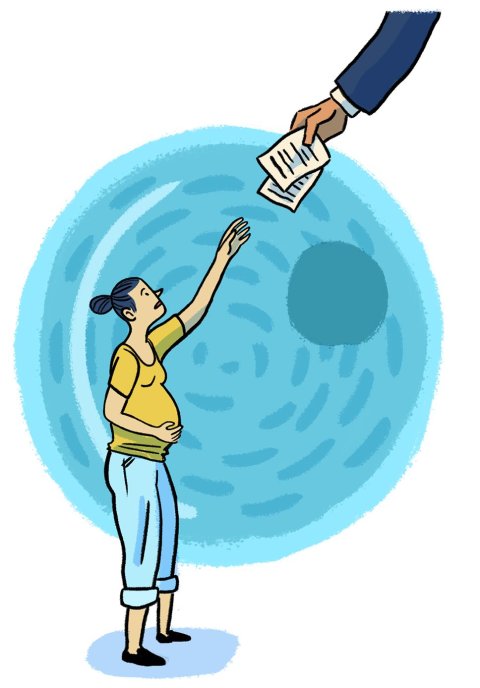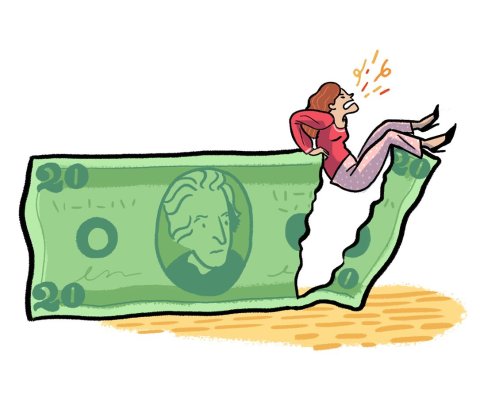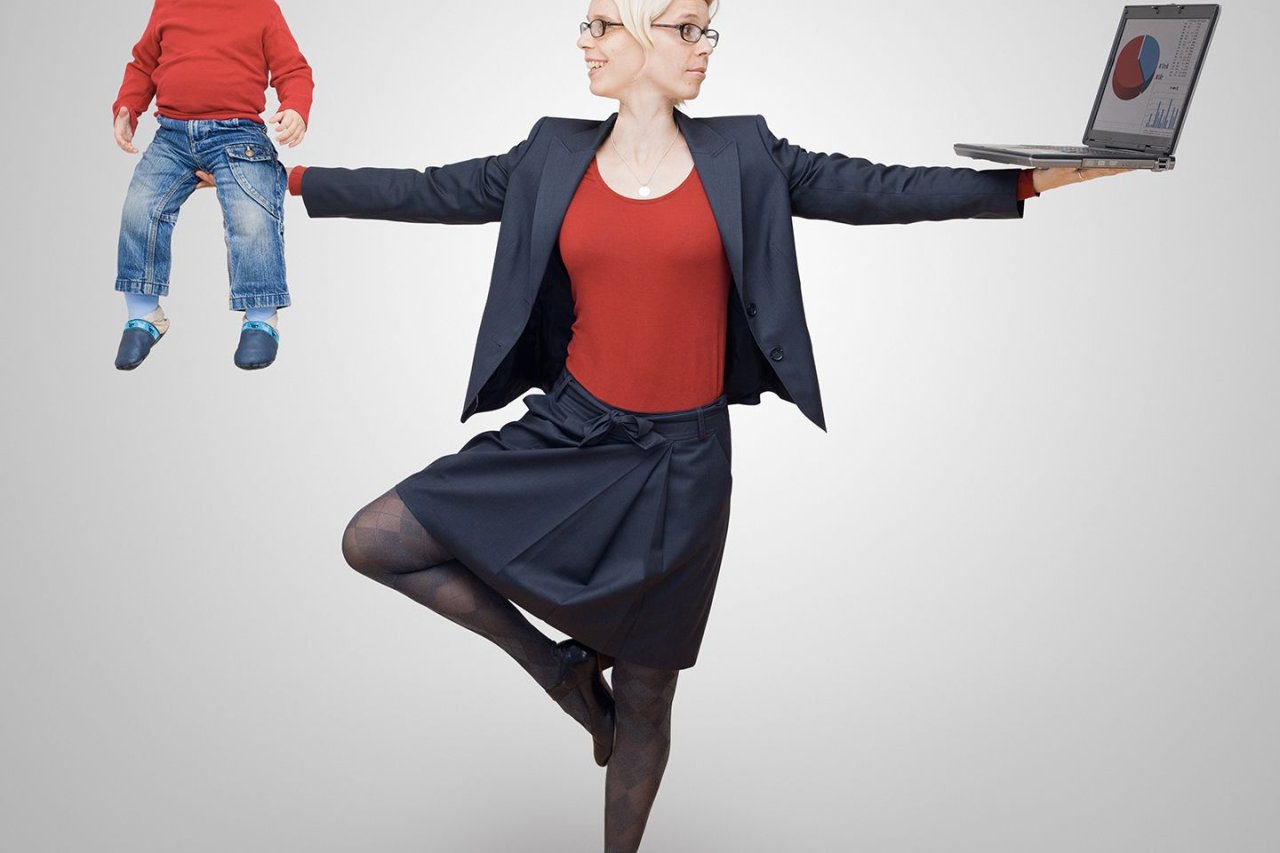Senator Tammy Duckworth made history in April when she became the first sitting senator to give birth. And her daughter, Maile Pearl Bowlsbey, has already made history as the first infant allowed on the Senate floor, after a rule change pushed for by Duckworth. But although Duckworth has been hailed as a hero for working mothers, the similarities go only so far. As a senator, Duckworth's salary is set by statute, leaving her immune to what's known as the "motherhood penalty." For most working mothers, children bring more than a change in routine; they also bring a change in income.
When a woman becomes a mother for the first time, her pay decreases by 4 percent on average. By comparison, new fathers typically see a 6 percent increase in their salary. And the chasm expands with each additional child. "If a woman has two children," says Michelle Budig, a sociologist at University of Massachusetts, Amherst, "her earnings would be, on average, 8 percent less than women who don't have them."

The decrease is partly explained by women cutting back on their work hours or leaving the labor market entirely. "There's truth to that," Budig says. But that change explains only about a quarter of the total penalty. Fathers contributing more to housework doesn't mitigate the hit women take on their pay. "Whether you have a husband who does relatively more housework or less housework isn't too important for the size of the motherhood penalty," says Harvard University sociologist Alexandra Killewald.
There are other disparities: Women who have taken time to raise their children, or who have children when they apply for jobs, can suffer for that decision. Several years ago, Stanford University sociologist Shelley Correll and her colleagues found that women who hint at having children on their résumés—noting a parent-teacher association position, for example—receive fewer callbacks than other applicants. Furthermore, prospective employers can have negative reactions to stay-at-home mothers seeking to return to work. "In some contexts, they pretty aggressively screen them out of the hiring process," notes Christy Glass, a sociologist at Utah State University. These obstacles are less understood than the wage gap, she adds; they could also have have significant impact on the work experience.

Such economic imbalance affects more than the mothers themselves, says Budig. "Well-raised children grow up to be taxpayers that support people when they retire, and many of them become doctors and caregivers for the rest of society."
Yet women, Tammy Duckworth notwithstanding, who choose to have children continue to receive inadequate support. "That women are penalized for doing work that has a social contribution," says Budig, "is doubly bad."













